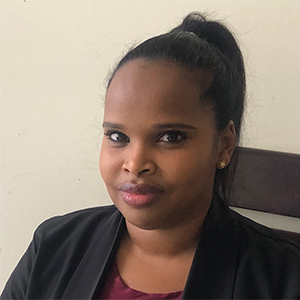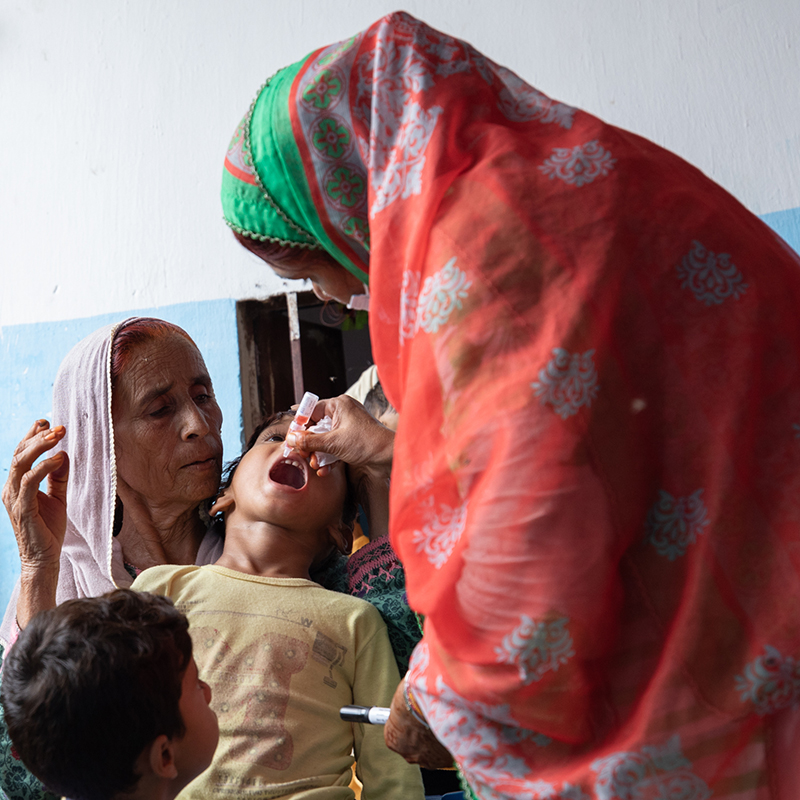By Safia Ibrahim

Sometimes I catch myself admiring my daughter as she reads a book at bedtime or does her math homework. These are skills we have come to expect from a child at her age. However, my memories as a young girl living with a disability from polio in Somalia are quite different.
I remember every morning I would wake at the peak of dawn, brush my teeth, comb my hair and change for the day. I then would sit outside our front door and watch as children from my neighborhood walk to school with their thermos full of water and school bags on their backs. I would wave to them with a smile but internally I was crushed.
At that age l knew two things for certain; one, I wanted to also carry a thermos and a backpack and walk alongside my peers, and two, something life changing was happening at that building they called school and I was missing out.
I was missing out because as a toddler I contracted polio – a highly contagious disease that attacked my brain and left me partially paralyzed from the waist down. As a result, I spent the first six years of my life crawling. It was clear to me growing up that because I had a physical disability, my experience was going to be vastly different from other children.
Children with disabilities face many barriers, including, for me, an inaccessible physical environment. Also, being a girl meant additional restrictions, as any available resources would go to boys with disabilities first – and it was rare that there would be enough for all of us.
When the civil war in Somalia broke out, my family and I migrated to Canada. Moving to a new country meant new experiences. I was first taken to the Hospital for Sick Children in Toronto and was fitted with leg braces and crutches. They were bulky and heavy, but liberating. For the first time in my life, I was able to walk more than two metres without needing to rest.
I was then informed that I was starting school the following week. I couldn’t comprehend this new concept as I was raised to believe school was not a place for me. I remember picking out my clothes, folding and unfolding them, and packing my school bag with my new pencil case and binder that I insisted on buying. I was beyond excited, but nervous at the same time because I didn’t know what to expect. I just knew I belonged there.
Monday finally arrived. I combed my hair, brushed my teeth, and changed just as I had always done in Somalia. But something was different about this day. Today I was finally going to start school.
I climbed into the back of a taxi that the school sent. We didn’t drive for long but it felt like eternity. My heart was about to jump out of my chest.
When I got to the school, I found out that I had been assigned a special education teacher. Her name was Lisa. She was just as excited to meet me, and her smile calmed my nerves. She helped me find my new class and introduced me to my teacher, Ms. Pat.
At that moment, I looked around as I saw five multi-colored round tables with four plastic chairs each. There was a fish tank, a blackboard at the front of the class, and letters on the wall. There were children’s drawings displayed on the walls and a rocking chair in the corner where Ms. Pat sat during story time. Ms. Pat guided me to a blue table, the one nearest to her desk. There were labels with letters on the table, and she pointed to one. “Safia,” she said, pointing at me. At that moment I realized that spot was created for me. I finally had a seat at the table, and it didn’t matter that I had a disability or that I was a girl or a refugee.
Every child that is paralyzed from polio is one too many. Polio will rob them of their childhood, they will be forced to watch from the sidelines as they will continue to be excluded from buildings they belong in and they will miss out on life’s simplest joys like scoring their first goal in the game of soccer.
We have come a long way in the fight against polio. Before the Global Polio Eradication Initiative started in 1988, the disease paralyzed more than a thousand children a day. We are close to the finish line, but the case in New York, where polio was eradicated more than 30 years ago, is a sobering reminder that polio is just a plane ride away and until every child is immunized, polio will continue to be a threat to every child.
https://blog.rotary.org/2022/10/19/polio-a-threat-to-every-child/

